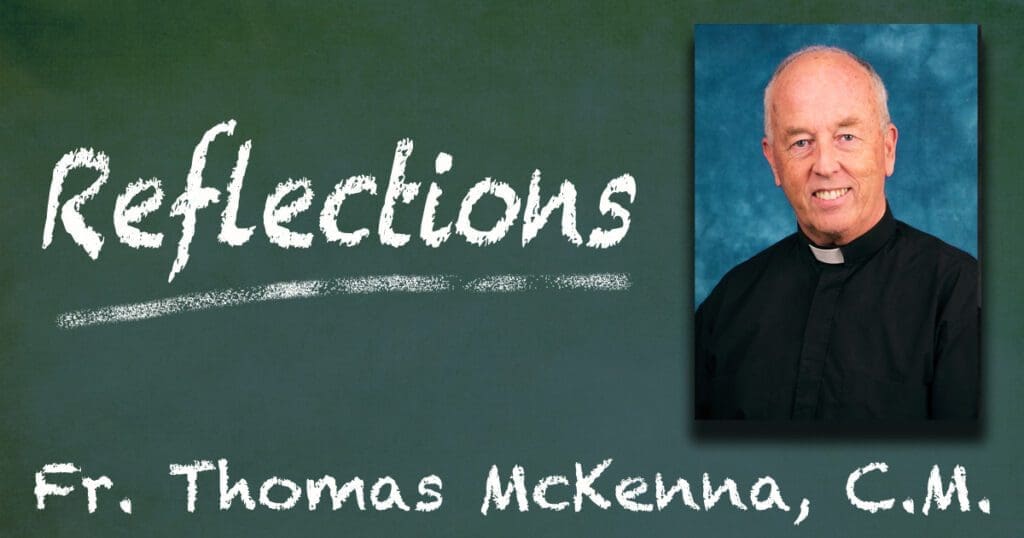I think people would worry if someone accused them of “hearing voices.” But the truth of the matter is that during each week, any number of voices are directed at us. Not in just casual conversation with family and friends, but more to the point, those voices in society telling us what counts, what’s more important and what’s less so.

And so – all the messages coming from the media: the daily newscasts, the lines streaming through the internet, the content of the books we read and the movies we see. In some way or other, each one of them is making a case that some things are more valuable than others — or more accurately, that some truths carry more weight than others.
There are these many voices out there calling not only for our attention, but even more for our allegiance, our judgment as to what counts and what doesn’t.
Chapter 10 of St. John’s gospel sounds out a certain recognizable voice — the cry of the Worried Shepherd who is out searching for his wandering sheep. While there, other voices are reaching their ears, some of which lead in dangerous directions. If the lost sheep are to stay safe and are to receive what is best for them, their hearing needs to fix on that one voice, the Shepherd’s whose concern is so great that he would lay down his life for them.
His voice, out there among others, is the one that will let them live their fullest lives, that will lead them home. It’s in their very best interests that they learn to distinguish and recognize it — and then, follow its sound.
This action portrait of the loving shepherd calling to his wandering sheep is an image that’s been etched into the imaginations and hearts of believers through the ages.
Besides the comfort it has given to the lost, the scene also puts a spotlight on listening. Lending an ear for that distinctive voice of The Good Shepherd, Jesus Christ, risen and all around us and most importantly alive right within us. How might we listen better?
For one thing, we hear overtones of the Shepherd’s sound in the traditions of our own Church — its teachings and the example of its members, especially its saints, but also those personally closest to us. We also know that we sharpen our hearing when we come together to worship. There we listen to God’s words, and especially do we sensitize ourselves to the Divine tone when we let ourselves be taken into the saving energy of the Eucharist.
A special listening comes through our own private prayer. There we just “come as we are” before God and open our hearts to His presence, calling us at the core of our innermost selves.
The point: what can we do to become better listeners? What is it that will sharpen our hearing to the saving sounds of this Good Shepherd, the one who is out there always searching, always leading us on?
What comforting yet challenging words: “I am the Good Shepherd. I know mine and mine know me. And I will go so far as to lay down my life for my sheep.”
In a conference on humility given late in his life, Vincent prays he might keep on listening: “Speak to us, Lord, speak to us as Yourself; we are here as so many servants who are listening to You.” (Vol 12, p 166, April 1659)
Together, let us sharpen our hearing for the Shepherd’s voice.







RE: “There are these many voices out there calling not only for our attention, but even more for our allegiance, our judgment as to what counts and what doesn’t.”
We read in Psalm 73 that even those who make up God’s people turn to the wicked, always carefree, increasing their wealth, and drink deeply of their words.
May we members of God’s new people fix our hearing “on that one voice, the Shepherd’s whose concern is so great that he would lay down his life for them.” May he keep us safe, especially as the elections draw near, from hirelings that are only out for themselves.
Thanks, Tom.
Thanks, Ross…
Ross, I don’t miss your point about not listening to the “hireling” voices. Thanks.